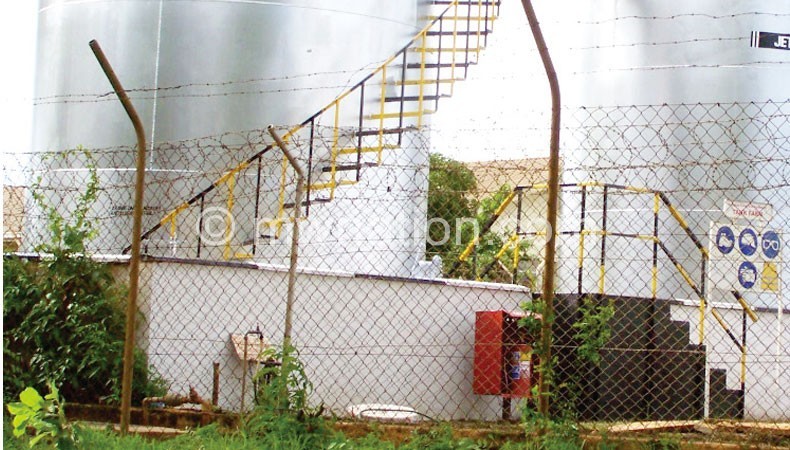Govt, fuel importers tussle over roles
Government has directed that all fuel importation will now be done by the National Oil Company of Malawi (Nocma) to ensure security of supply while the role of the Petroleum Importers Limited (PIL) will be to buy from Nocma and sell to owners of filling stations.
But PIL said this week they believe PIL will continue to perform its role of importing fuel as it has done for the past 15 years and blamed government for the fuel shortage that rocked the country between 2011 and 2012.
Minister of Natural Resources, Energy and Mining Bright Msaka told Weekend Nation last week that security of supply is what matters for Malawians because it has fuel reserves.
‘‘This is not about competition between Nocma and PIL, but to ensure that fuel shortage will never occur again,’’ he said.
Said Msaka: ‘‘As far as I know, when you weigh the national interest and PIL sentiments, you find that evidence weighs heavily in favour of Nocma importing the fuel and PIL selling it to the people and both companies must survive.”
He said currently the Strategic Fuel Reserves (SFRs) are 90 percent complete and Nocma is in the process of inviting tenders from companies to import fuel into the country. Msaka said the SFRs are expected to reduce cost of storage.
But general manager for PIL Enwell Kadango said although they are aware of the discussions on appointing a sole fuel importer for Malawi, they
have not been advised of Nocma’s appointment and believe the best decision will be made in this regard for the supply of fuel in the country.
He said according to the National Energy Policy of 2003, Nocma does not have the mandate to import and trade in fuel.
‘‘For that reason, we believe PIL will continue to do its role as it has done for the past 15 years. If there is any change, stakeholders in the industry, including PIL, will be advised as we currently have contracts running to 2016 both with suppliers and local distributors in the country,’’ he said.
Said Kadango: ‘‘The shortages of 2011/2012 were mainly due to the country failing to recover the cost of bringing fuel into the country and also not availing the needed US dollars to pay what was imported before.’’
‘‘Otherwise, PIL had the Malawi kwacha equivalent in the bank waiting for the allocation of foreign currency,’’ Kadango said.
He said as the country approaches the festive season, PIL has seamless supply of fuel for the nation and ‘‘we continue our bulk importation role into the future as we have done in the past.’’
Kadango also said PIL has the skill and might which the company has used over the past 15 years to import fuel for the country.
He said PIL is also backed by international companies which give it auxiliary competences such as safety issues and technical aspects that are required in fuel management.
‘‘PIL has operated its business in a transparent and open manner, earning a good reputation from the international suppliers. The shareholders of PIL have been handy to offer guarantees that are required for [the] establishment of importation facilities by way of letters of credit and any other legal requirements in this business,’’ he said.
‘‘For your information, PIL was born out of the recommendations from the World Bank, the IMF and Government of Malawi when PCC [Petroleum Control Commission] was phased out,’’ said Kadango.
Until 2000, fuel importation was being regulated by government through PCC.
However, government abandoned its mandate to control the fuel industry when it established Malawi Energy Regulatory Authority (Mera) to take some of the duties of PCC albeit with a different mandate.
PCC was riddled with corruption and political interference. It was abolished in 2000, a development that resulted in the establishment of PIL-a consortium of private fuel companies.
Between 2010 and 2012, Malawi experienced serious fuel shortages, a development that forced government to establish Nocma. To solve the fuel shortage problem, Mera introduced the Bulk Procurement System and SFRs which necessitated changes in the mode of purchase of fuel and its storage.
Government then established Nocma to ensure security of supply that private importers could not guarantee by investing in fuel storage facilities and embarked on construction of fuel reserves across the country. Nocma has since been positioning itself as better placed to import fuel accusing PIL of lacking capacity for the task and that PIL was mostly interested in profiteering.
Nocma also believes PIL over-relies on interest income from their cash war chest as opposed to industry margins. But PIL also doubts Nocma’s capacity based on how PCC messed up the fuel importation through corruption and political interference. PIL also sees a conspiracy within the State architecture to kill it off by crippling its fuel importing ability.
Responding to PIL’s accusations of governance, Nocma general manager Robert Mdeza said his organisation has an independent board of directors, with active committees, that will ensure that governance challenges like corruption and political interference are avoided.
‘‘In addition, Nocma follows procurement guidelines from the Office of Director of Public Procurement (ODPP). Unlike during the time of PCC, now all licensees come under strict regulatory supervision by Mera,’’ he said. He said PCC was both a regulator and importer which was the main source of the challenge.
But he said Nocma gets audited by Mera, National Audit Office and from time to time the ODPP. He also said Nocma will work with the Anti-Corruption Bureau (ACB) to come up with preventative measures as well as Tips Anonymous that is run by Deloitte.
‘‘We have already been given training by ACB. We are already talking to Deloitte,’’ he said. n





